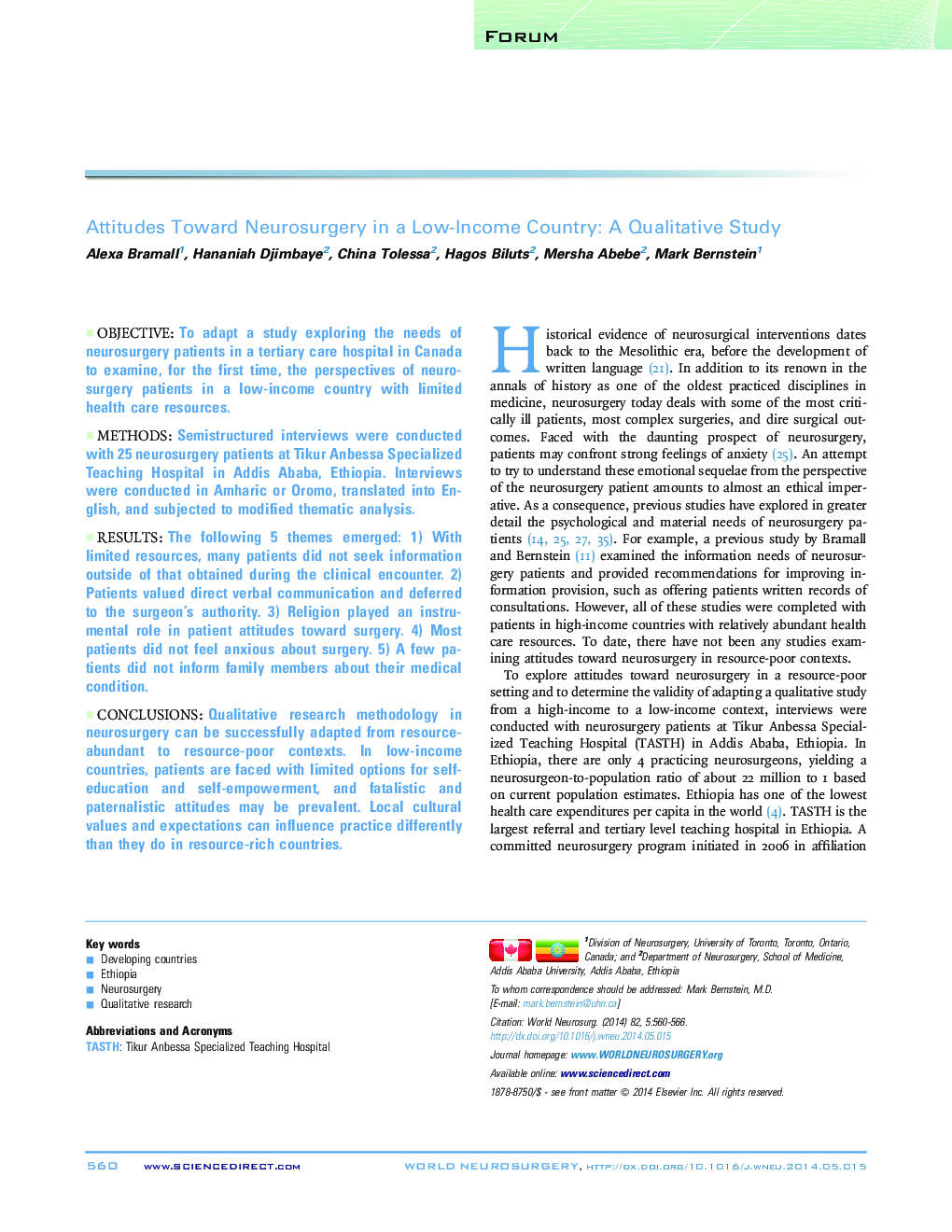| Article ID | Journal | Published Year | Pages | File Type |
|---|---|---|---|---|
| 3095275 | World Neurosurgery | 2014 | 7 Pages |
ObjectiveTo adapt a study exploring the needs of neurosurgery patients in a tertiary care hospital in Canada to examine, for the first time, the perspectives of neurosurgery patients in a low-income country with limited health care resources.MethodsSemistructured interviews were conducted with 25 neurosurgery patients at Tikur Anbessa Specialized Teaching Hospital in Addis Ababa, Ethiopia. Interviews were conducted in Amharic or Oromo, translated into English, and subjected to modified thematic analysis.ResultsThe following 5 themes emerged: 1) With limited resources, many patients did not seek information outside of that obtained during the clinical encounter. 2) Patients valued direct verbal communication and deferred to the surgeon's authority. 3) Religion played an instrumental role in patient attitudes toward surgery. 4) Most patients did not feel anxious about surgery. 5) A few patients did not inform family members about their medical condition.ConclusionsQualitative research methodology in neurosurgery can be successfully adapted from resource-abundant to resource-poor contexts. In low-income countries, patients are faced with limited options for self-education and self-empowerment, and fatalistic and paternalistic attitudes may be prevalent. Local cultural values and expectations can influence practice differently than they do in resource-rich countries.
